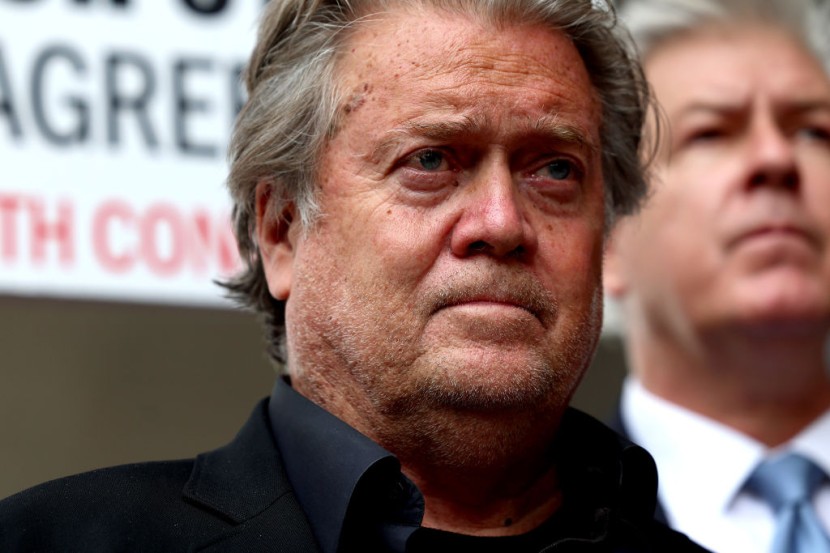
Steve Bannon, a former member of the Trump White House staff, was found in contempt of Congress for ignoring a summons from a Jan.6 House committee. For each of the two misdemeanor accusations against Bannon, the potential sentence is a year in jail.
It was mandated that the jury start deliberating on Friday morning. After hearing the prosecution's and the defense's final statements, US District Judge Carl Nichols dismissed the jury.
DOJ Files 2 Charges Against Steve Bannon
In response to Bannon's refusal to comply with a subpoena from a House committee on January 6, the Department of Justice filed two charges of contempt against him. Bannon entered a not-guilty plea. Bannon said he was barred from testifying before the committee to discuss the attack on the United States on January 6, 2020 due to executive privilege.
However, the defense informed the jury that Kristen Amerling, a staff member of the January 6th Committee, was "the entire foundation of the government's case," Fox News reported. The jury was also reminded by Corcoran of the testimony that Amerling and Gaston had a romantic relationship outside of the workplace since they were both in the same book club. Additionally, Corcoran informed the jury that this case involves politics.
Following Bannon's not guilty plea, there was a heated legal battle between the defense and the prosecution over which evidence could be used, Bannon's attempts to postpone the trial, and the ongoing televised hearings showcasing the evidence presented by the House Jan. 6 select committee, which frequently mentioned Bannon.
Per CBS News, the House committee, which wrapped up its final session of the summer on Thursday night, issued the subpoena in September 2021. The panel questioned Bannon on 17 important topics, ranging from his interactions with former President Donald Trump to his awareness of right-wing extremist groups' involvement in the Capitol attack.
The prosecution informed the jury that Bannon felt he was "above the law" and "thumbed his nose" at congressional requests, despite the fact that Bannon did not testify and his defense team did not present any witnesses. The main attorney for the Jan. 6 committee stated that it is "very unusual" for witnesses who receive a congressional subpoena to plainly refuse to testify, as Bannon did.
Kristin Amerling, one of the two witnesses mentioned by the prosecution, asserted that despite being informed that Bannon would be charged, the committee considered the referral of Bannon to the Justice Department for criminal contempt of Congress as a "very harsh step."
Bannon said that the reasons given by the departing president barred him from testifying at the time. Amerling, however, said that the committee never heard from Trump on this obstruction to Bannon's removal and that the committee would not have first accepted such a claim.
Bannon told the Jan.6 committee that he would be pleased to appear in public, days before the trial began in a remarkable about-face after his attorney Robert Costello said Trump had changed his mind about those executive privilege claims.
Bannon's Team Urges Other Jan.6 Committee To Testify
In both witness cross-examination and closing remarks, the judge clearly informed the jury that the reversal had no bearing on Bannon's alleged past lack of cooperation.
Additionally, Bannon's team provided the court with many justifications for why the Mississippi Democrat Bennie Thompson, the chair of the committee, and other committee members should have been permitted to testify on hearing. In response to a House motion to prevent their appearance, citing constitutional limitations on when lawmakers may be summoned, the court declined to let Bannon to bring them to the witness stand.
The House staffer who testified about the several exchanges between the committee and Bannon's lawyer over the subpoenas and the House's requests that he comply by the dates mentioned was called to the stand by the Justice Department throughout the trial. The second witness for the prosecution was an FBI agent who gave a brief statement on Bannon's social media posts sharing news stories reporting his non-compliance, as per CNN.
Related Article : Jan 6. Committee Rejects Steve Bannon's Request To Delay Trial After Longtime Donald Trump Adviser Offers Testimony
@YouTube








